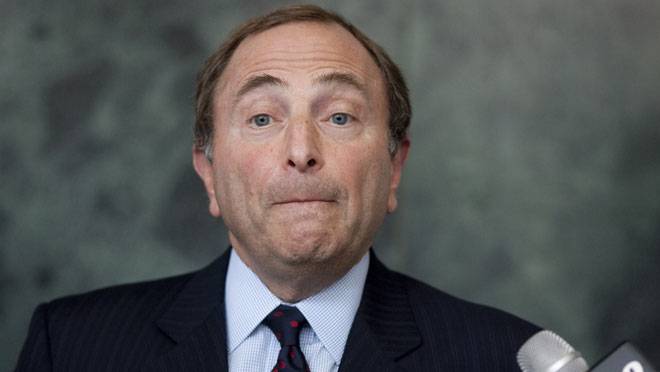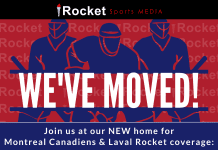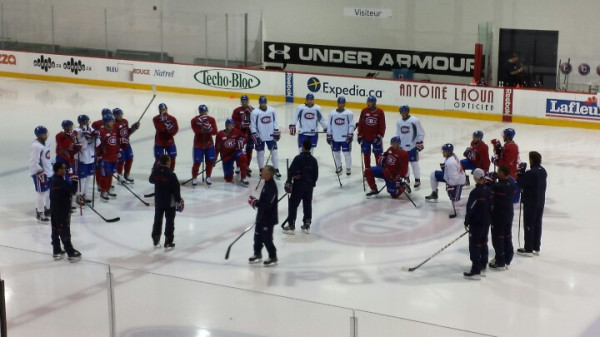By Steve Farnham, Associate Editor, AllHabs.net
LONGUEUIL, QC. — Negotiations on a new collective bargaining agreement (CBA) have reached comic book proportions as the players represented by the National Hockey League Players’ Association (NHLPA) have taken the role of the likeable and friendly Smurfs. Players have taken to Twitter to lead a battle of public opinion seeking fan support during this labour dispute. Then you have Gary Bettman representing the owners in these negotiations (just as Donal Fehr represents the players) with the Commissioner being labelled as the evil Gargamel, who wants to rid all NHL smurfans of their precious Smurfs. The analogy might be a little out there, but you get the point. Players = good, Bettman = bad.

As much as fans and media alike would like to believe (myself included) that we have some sort of say or impact in these matters, I don’t necessarily believe we do. The two parties at the negotiating table are the players and the owners, and neither of the two have any focus on the game right now — all focus is on dollars and cents. It doesn’t mean they don’t care about the game or fans, it just means that right now, they care more about how this CBA negotiation will affect their finances going forward. C’est la vie.
If we rewind back to the 2004-’05 lockout, the NHLPA, then represented by Bob Goodenow, were seen as giving in to the owners accepting a 24 percent reduction in player salaries as well as allowing the league to adopt a salary cap. Although the changes were needed coming at a time when players were earning a whopping 75 percent of annual revenues, I can understand why some people feel that the owners are being greedy-meany-monsters by once again asking for a drastic reduction in player revenue. An understanding doesn’t necessarily mean agreement.
Under the current CBA, 57 percent of annual revenue goes towards player salaries but the proposal laid out by the owners would see this reduced to 43 percent. To put this into workable terms, let’s first of all take into consideration that the NHL’s annual revenue for the 2011-12 season was $3.2 billion.
- 57 percent of this amount equates to $1.824 billion, or $60.8 million on average per team.
- 43 percent of this amount equates to $1.376 billion, or $45.87 million on average per team.
That’s a significant difference to say the least.
The change also proposes to eliminate salary arbitration, reduces contract lengths to five years (I’ve heard many fans asking for this) with salary equally spread over each year (equal cap spread, didn’t we want this too?), unrestricted free agent (UFA) status after 10 years and a change to how the salary cap is calculated. In the current CBA, the salary cap is set $8 million above the league’s average, and the floor is set $16 million below it [cap]. Keeping in mind that both the Boston Bruins and Minnesota Wild have $68 million dollars in committed salaries for next season, the proposed change would have the salary cap set $4 million above the league average, which by my calculations would put next year’s salary cap at approximately $50 million. Under the current CBA, it has been tentatively set to $70.2 million for next season.
Significant difference to say the least.
I guess that if I were in the players’ position, I wouldn’t be too happy about the situation either, you never want to lose – anything, but can we really blame the owners for making these claims?
We keep hearing about how the league revenue keeps going up, but how well is the league really doing? According to Forbes, the Toronto Maple Leafs and Montreal Canadiens’ combined operating incomes last season were more than every other team in the league combined. Of the 30 NHL teams, 16 operated in the negative. If a bigger piece of the pie would go to the owners, it should allow more teams to operate outside of the red zone.
It should also be noted that two other major sports just recently had their own labour disputes. The NBA had their own lockout at the start of the 2011-’12 season, which led to 16 regular season games being cancelled. The dispute ended with the players accepting a 50/50 split of the league’s annual revenue. The NFL, who earns over $9 billion annually on the other hand didn’t miss any regular season games in their lockout prior to the 2011 season, and their dispute ended with the players accepting a deal which sees them receiving slightly less than an even 50/50 split of the league’s annual revenue.

With both the NBA and the NFL, who have annual earnings higher than the NHL having CBA’s where the owners and players either split revenue 50/50 or close to that, I find it difficult to see how NHL players can maintain their current 57 percent grip on annual revenue. Often in negotiations, we decide to meet halfway, and with the owners offering 43 percent and the players wanting to keep 57 percent, meeting halfway in the middle at 50 percent makes sense to me. We’ll have to wait and see.
The players on the other hand proposed a very different deal which was mostly kept hush-hush, but seems to weigh heavily on the fact that the players would lose about $450M over the next three seasons, and would also introduce a new revenue sharing approach in hopes of having the wealthier teams assist those in need. The needy.
In a nutshell, the owners believe that the road to a healthier NHL takes an avenue where the players give up salary, while the players believe this would be best achieved by having the wealthier teams provide more assistance to those suffering.
Oddly, I find it difficult to argue with either side.
Important dates: current CBA runs out on September 15; the NHL regular season is set to start October 11; the two parties are scheduled to resume formal discussions on August 22.
I also invite you to read, NHL vs NHLPA: I’m Siding With the Fans by All Habs’ Managing Editor, Chantal who inspired me to write this column. She’s decided to side with the fans, as for me, I’m not really siding with anyone, I’m just going to sit here and wait for this to get resolved, and write and tweet about it while we get there.
For a different perspective, you are also invited to read Duelo de Titãs – NHL x NHLPA (Remember the Titans — NHL vs NHLPA) It’s written in Portuguese (don’t worry, there’s a handy translator in the toolbar on the website) by Louise, one of our lead contributors in Brazil.
@stevofarnham
~~~~~
(Feature Photo: Chris Young/Canadian Press)








![Prospect Report: Habs Development Camp Testing [GALLERY]](https://habshockeyreport.com/wp-content/uploads/2014/07/IMG_2897.jpg)

![Habs Western Road Trip in Pictures [GALLERY]](https://habshockeyreport.com/wp-content/uploads/2014/03/476898185_slide.jpg)